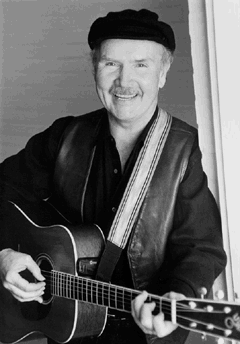"I wanted to start a gang, but it turned into a book club..."
I don't know the kindred spirit who first said the above quote, and I've probably butchered it somewhat, but...Guilty as charged! Which is saying a lot, because usually I write about the mob...
BOOK CLUBS ROCK...
I love my current book club. We don't do the 'buy one book and everybody read it' thing. Instead, we have a list of categories (30 in all) and are expected to read one book that satisfies each criteria in a calendar year. We can each read a different book that fits the category. We also give each other two free outs, meaning you can skip two categories if you absolutely hate them. Bless those outs.
Love this club,
because I am pushed into reading things I wouldn't normally pick up.
Other genres, past classics, even cookbooks. Plus they come with
recommendations from people I trust. We all read more than 30 books a year (I'm close to 100.) So there's still lots of time to read new releases from favourite authors beyond those 30 on the book club list.
That said, I'm a crime writer and crime reader. Whodunits are my trade, and I shy away from anything that sniffs of Chicklit. So you can imagine my surprise when I am pressured to read a book that reaches me in a way I didn't expect. "What Alice Forgot" by Liane Moriarty, is a perfect example, and I'm exceedingly grateful. That book made me think about my own past and future, at a time when I had just lost my first husband to cancer (decades earlier than it should have been.)
And let me also say, that I am thrilled that people are reading. If
they want to read things I don't find pleasure reading, that's
terrific! Please, please keep reading, young people. It doesn't matter
what books you cherish, as far as I'm concerned.
Still, there's the guilt. Yes, I feel guilt. I should like reading everything. I should at least recognize that reading diverse books is 'good for me,' and thus be an enthusiastic participant.
Confessions, confessions. What things have I learned about myself, through that seemingly innocent little social activity?
Three things come to mind. Let me take a moral inventory, and feel free
to cast aspersions on my virtue. It wouldn't be the first time (wink).
1. Non-fiction sucks.
University type here. Prof at college for 30 years. Read a lot of non-fiction in my time, in order to be able to teach the stuff. Guilty secret? For me, reading non-fiction is work. I don't want to work in my off-time.
I know. I can hear the collective gasps from here. Non-fiction is good for you! It makes you smarter!
I
doubt very much if anything at this stage could make me smarter (much
as that might be desirable for all concerned...) It might make me more
knowledgeable, that I accept. Do I care? Not much. My brain is
precariously close to full now, and putting more into it threatens to
dump other things already lodged there out my ears. (Medical fact. I
read it online.)
2. And on that note, I rarely enjoy reading memoirs and biographies.
Our
book club requires us to read one of the above, once a year. It's not fun for me. I really don't like spending my time reading about
other people's lives, especially the white-washed
versions. Ditto, the poor me versions.
Why? I read to escape reality. Which brings me to the final point (some of you will gasp.)
3. I don't care much for fiction written from (many) multiple points of view.
There are some extremely popular books out now that are written from several points of view (I'm thinking The Thursday Murder Club and like.) I like humour and crime together, so I gave it a try. And I can see why people would like it. I thought some parts of it were great fun. Thing is, I kept putting it down. I could read a chapter and put it down. Pick it up a few days later and read another two scenes. Then put down the book and forget about it.
What this tells me: For me, it wasn't a compelling read. I didn't care enough about the protagonist to keep reading to find out what would happen. Wait a minute - to tell the truth, I couldn't even tell who the protagonist was!
And that's the key. The protagonist. God Bless Book Club. I've learned a lot about myself and what I treasure reading. To wit:
I want to become the protagonist when I read a book.
(Please let me know in the comments below if you relate to this.)
I want to slip into the skin of the main character and have a rollicking adventure. I want things to happen. I want there to be a satisfactory conclusion to the adventure, so I close the book with a smile on my face.
On the memoir front: For the record and just to be fair, I have no desire to write a memoir myself. Have the general public read all about my misspent youth and totally embarrassing past mistakes? Gulp. Would rather go public on my bra size (weight is off the table.) In fact, I am puzzled that others do want to share their dirty linen in public.
Mine is stuffed into drawers that hopefully my kids will never open.
Melodie Campbell writes fiction (swear to God it's fiction!) from the shores of Lake Ontario. Book 17 is now available for preorder. On AMAZON









